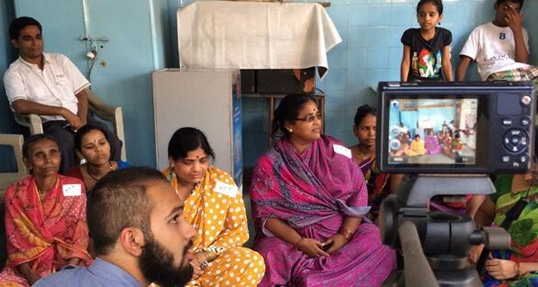As millennials make up an increasing percentage of the global workforce and business schools graduate a new generation of Masters of Business Administration, a marked shift in focus can be seen in business the world over. For these young and internationally aware professionals, social impact, not profit for profit’s sake, is often the driving force behind their career ambitions.
In ‘Changing the social conscience of business students’, Hult President Stephen Hodges notes: “Today’s business school students want to achieve more than good management practice; they are socially-minded young people, more so than previous generations, searching for greater meaning in their careers.”
Social entrepreneurship as an area of study and as a career path has soared in popularity over the last decade, particularly since the global financial crisis in 2008 that saw confidence in conventional capitalism plummet. Business students from all fields of study are developing disruptive new models to start businesses that solve pressing social issues.
The Hult Prize now sees more than 10,000 students from universities and business schools across the world submit their proposals on how to tackle large-scale social problems through business. And we’ve seen students from across our programs turn to social entrepreneurship to launch inspiring and successful social impact initiatives.
Social entrepreneurs often get the most press; they are the founders and faces of their businesses. But there are hidden heroes too – the MBA and business school graduates making radical changes from within the established corporate sphere.
Corporate Venture Capital Funds (often referred to as ‘venture capital’, or simply ‘VC’) are fast becoming preferred to traditional CSR initiatives due to their potential for financial return, the participatory rather than passive role of the benefactor, and their long-term, transformational goals. As BusinessBecause demonstrates in ‘MBAs driving social impact in corporate venture capital funds’, it’s MBAs that are pioneering this movement from their positions within companies.
Global leaders, both corporate and political, now see impact investment as key to businesses longevity. It’s not just lip service either; massive sums are now earmarked for social impact investment. BusinessBecause cites statistics from the Social Impact Investment Taskforce that show USD10 billion has already been invested in social impact globally. A further USD45 trillion in capital controlled by more than 1,200 asset managers has been set aside for responsible investment while USD13.6 trillion is in funds that include environmental, social, and corporate governance returns as part of their investment decisions.
Joanne Lawrence, Hult Professor of Corporate Responsibility and Social Innovation, gives a fascinating insight into what global leaders are now focusing on in her article: ‘From exploitation to transformation – focus on social impact requires new business models and transformational leaders’. In it she says: “The world’s truly visionary business leaders see their aspirations converging with those of governments, NGOs, and society at large.”
This has certainly been true of the business leaders visiting Hult’s global campuses as part of our Visionary Speaker Series. Paul Polman, CEO of Unilever, shared his long-term vision at Hult London of putting sustainability at the heart of Unilever’s business model by ensuring positive social and environmental practices are implemented at every stage of the company’s value chain. Peggy Liu, Chairperson of JUCCCE, spoke to Hult Shanghai about using sustainability to drive growth in her speech ‘A green China with global impact’. And Robin Chase, founder of ZipCar, presented her vision to Hult San Francisco of unleashing new technologies to reinvent the industry, and have a positive impact on both individuals and the environment.
Business schools are slowly responding to the call from students and employers to put social impact high on the agenda, integrate it into program courses, and provide students with opportunities to pursue their own initiatives. We answered that call ten years ago. Working with students, alumni, and businesses to see how we can increase the reach and effectiveness of our social impact and help create a better world through business – it’s the best part of our job.
Hult offers a range of highly skills-focused and employability-driven business school programs including a range of MBA options and a comprehensive one year Masters in International Business. To find out more, take a look at our blog Student perspective: Adjusting to life abroad and how I knew Hult was right for me. Download a brochure or get in touch today to find out how Hult can help you to learn about the business world, the future, and yourself.


